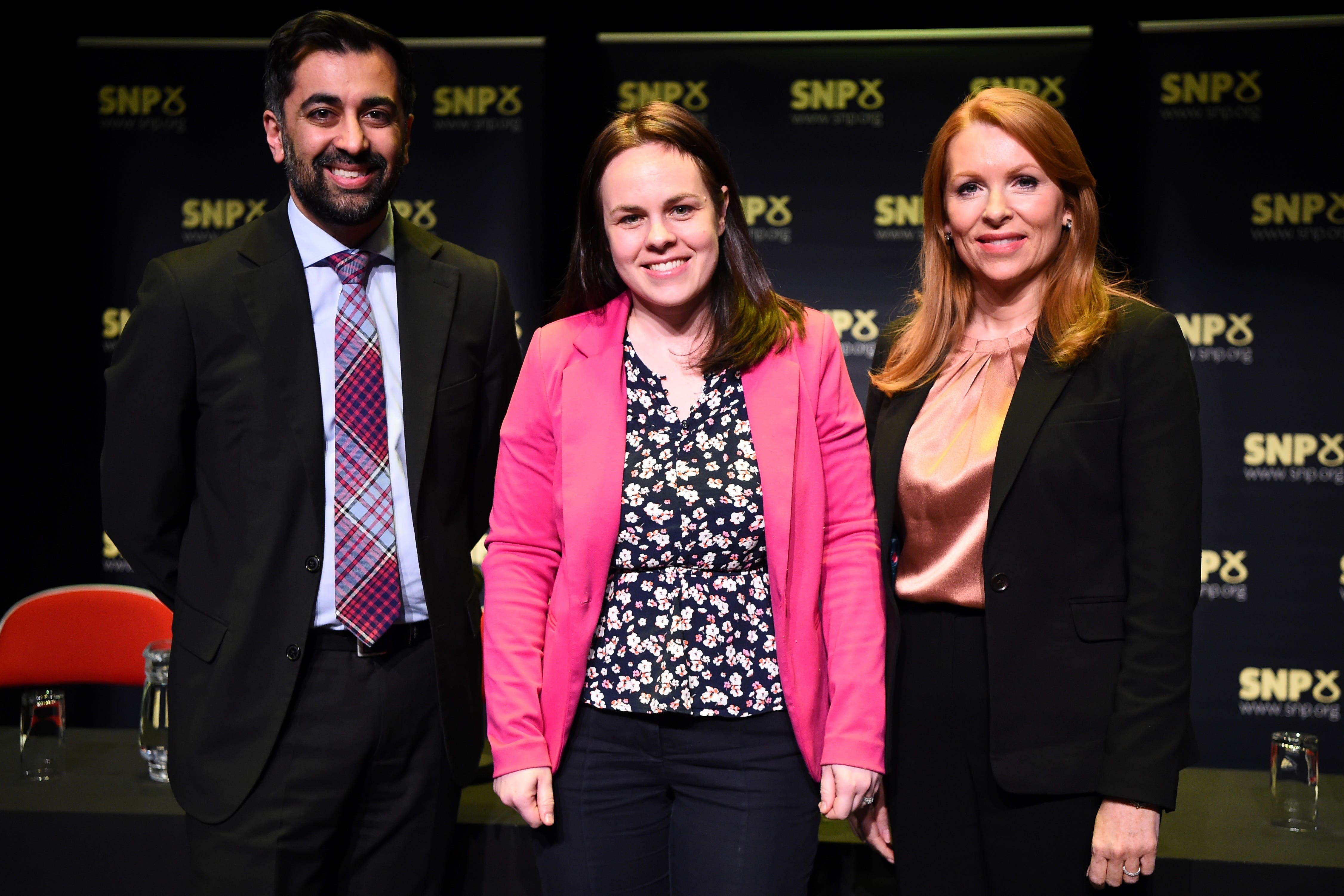Can SNP renew push for Scottish independence after Nicola Sturgeon?
The nationalist party has reached an impasse in its all-consuming cause. Adam Forrest takes a closer look at what lies ahead for its next leader


The Scottish National Party was supposed to be a tightly run ship. The unflappable crew always appeared entirely unified about the course Nicola Sturgeon had charted towards Scottish independence. But the captain’s decision to walk the plank into political retirement has exposed a rowdy mess happening below deck.
It has been all at sea during the past six weeks. Someone will have the tough task of grabbing the wheel and drawing up a new direction, not just for the party, but for the country and the independence movement, when Sturgeon’s replacement is announced on Monday afternoon.
Candidates who clashed repeatedly throughout the campaign will have to find a way to work together after a six-week-long argument, the vehemence of which seemed to shock even Sturgeon, who described the contest as “fractious”. Interim chief executive Mike Russell admitted the party was in a “tremendous mess”.
How has the campaign played out?
The insurgent Kate Forbes – the devout Christian who sparked a major row with her SNP colleagues by saying she would have voted against same-sex marriage – has been all too willing to criticise the SNP’s record in government.
To the delight of Labour and the Tories, the finance secretary attacked her main rival Humza Yousaf’s performance as health secretary, criticising his failure to tackle NHS waiting times and mocking him as the “continuity” candidate when change is needed.
There is also the thorny issue of gender recognition reform, and whether the Scottish government should definitely mount a legal challenge to the Westminster government’s decision to block legislation passed by Holyrood. Yousaf says yes, Forbes says no.
Pressing ahead with the court challenge could be key to keeping the SNP’s power-sharing agreement with the Scottish Greens intact – though a defiant Forbes has suggested she would be “comfortable” running a minority government if the left-wingers didn’t like her views.
What about the case for independence?
When it comes to the SNP’s all-consuming “journey”, Sturgeon has left no map to follow. She quit at a moment of impasse, after Rishi Sunak’s government and the Supreme Court refused to allow Holyrood to hold its own referendum.
Ash Regan – the outsider who campaigned as the independence fundamentalist and branded the other two “wishy washy” – vowed to make every single election a de facto referendum on separation until the Westminster government gives in.
But both of the candidates who actually have a chance of winning appear to have accepted that they need to go back to the drawing board and win more support before getting locked onto a particular path.
Forbes admitted last week that the SNP had failed to lay the “groundwork” for independence by talking to voters who had not yet been won over, while Yousaf has spoken about winning “a consistent majority for independence”, claiming that the legal obstacles would then simply “disappear”.

These holding positions won’t last for ever, though. The new leader will be expected to deliver a coherent strategy for independence – a movement that thrives on hope for the future, whatever the present difficulties.
What do opinion polls say?
Polls appear to show that the independence cause has taken a knock during the chaotic SNP contest. The latest Redfield & Wilton Strategies poll has the No side leading Yes by nine points, with backing for independence at 42 per cent, down seven points in the last four months.
But the former Labour first minister of Scotland Jack McConnell told The Independent that those who are “gloating” about Sturgeon’s exit as a boon for unionism “need to calm down” – warning against the complacency seen after the 2014 referendum victory.
It would certainly be wrong to write off the Yes movement. It has the kind of strength and depth across Scottish society that few single-issue causes can ever hope to match. After the huge gains made by Alex Salmond and Sturgeon, support is no longer dependent on the charisma of one particular SNP leader – though it would certainly help in winning over more people.
It’s worth remembering that Sturgeon was not a widely admired figure when she first took over from Salmond. Her first few months were crucial, however, in cementing her status as a formidable leader, listened to even by Scots who were not yet convinced it was time to break up Britain.
Whichever of the candidates takes the helm, they have no time to lose. They must establish their credentials as a national leader who can balance the public’s priorities with the party’s own obsession, or they will see its support flatline.
Several more years of underwhelming support for independence, bobbing just under or around 50 per cent, and even diehards may begin to question whether all the momentum has been lost.




Join our commenting forum
Join thought-provoking conversations, follow other Independent readers and see their replies
32Comments